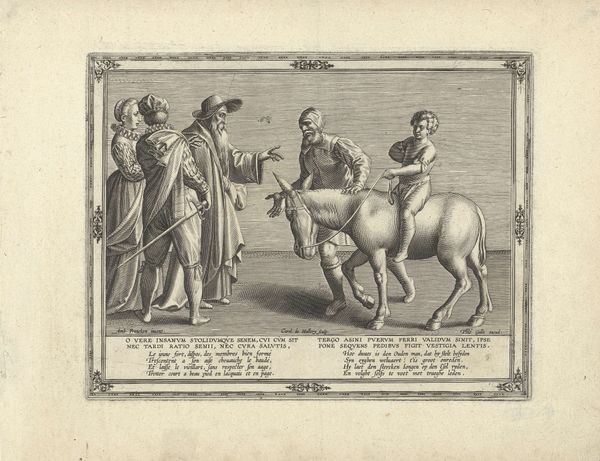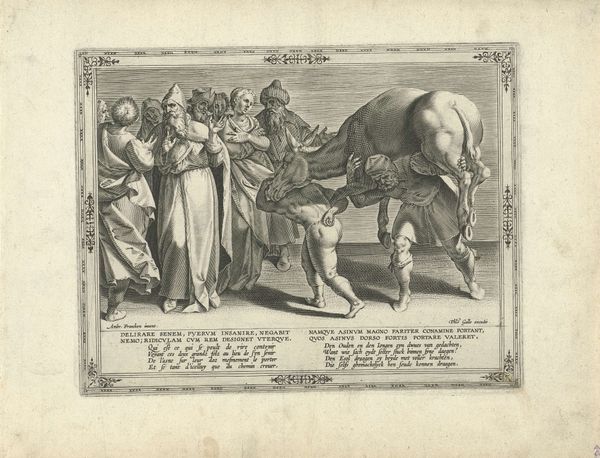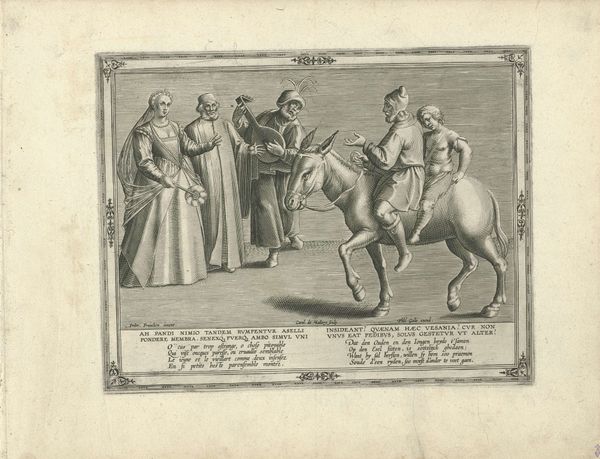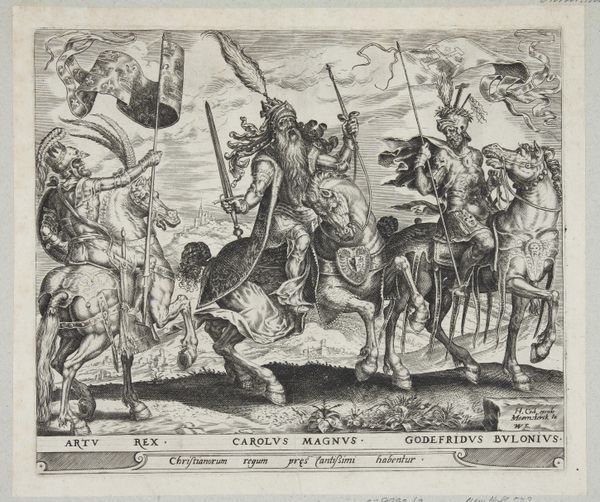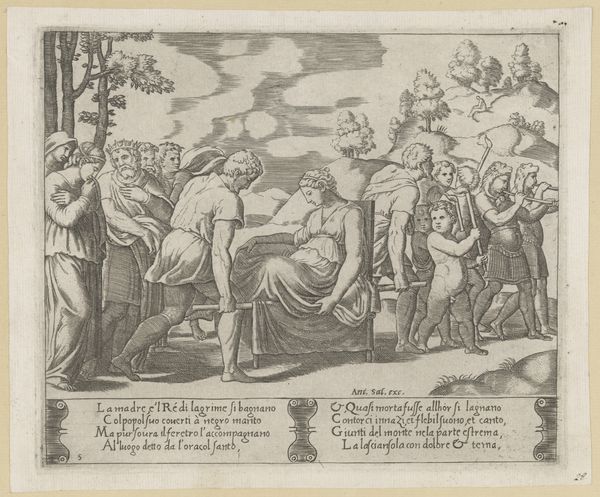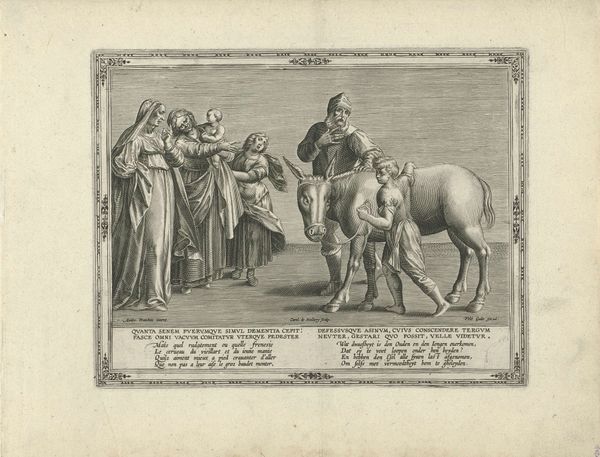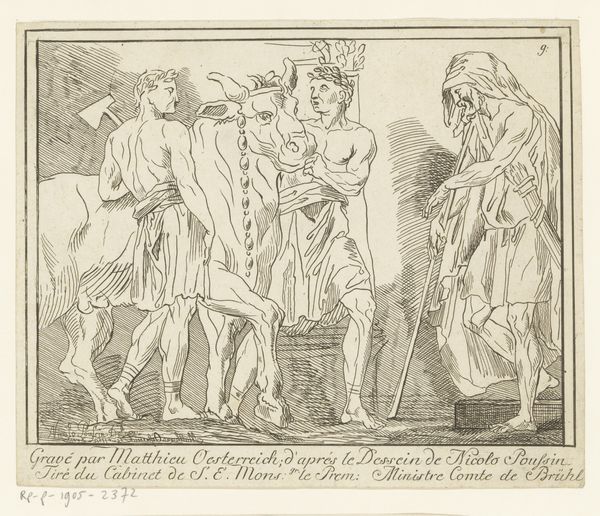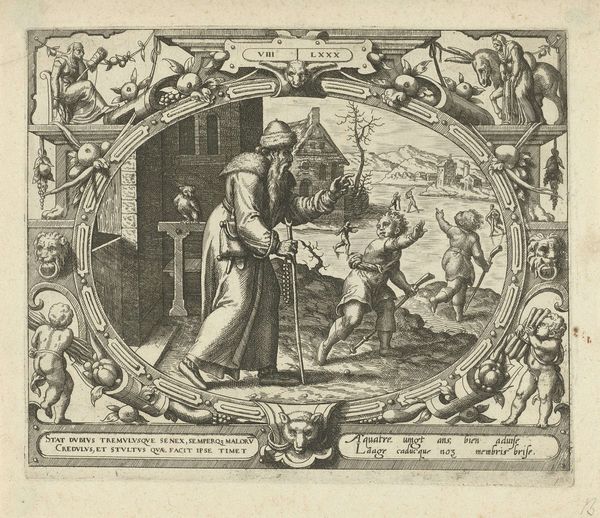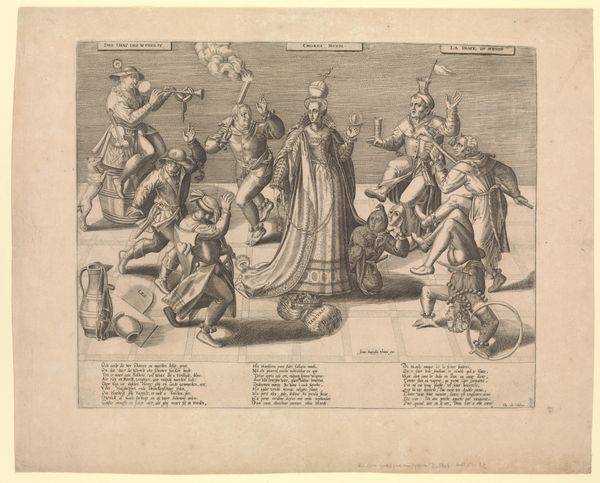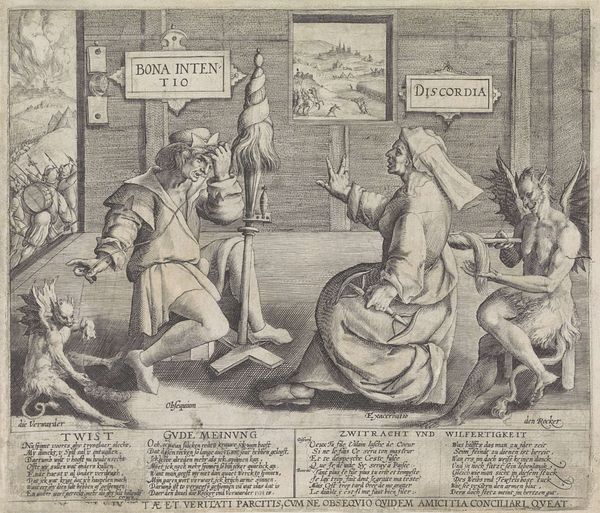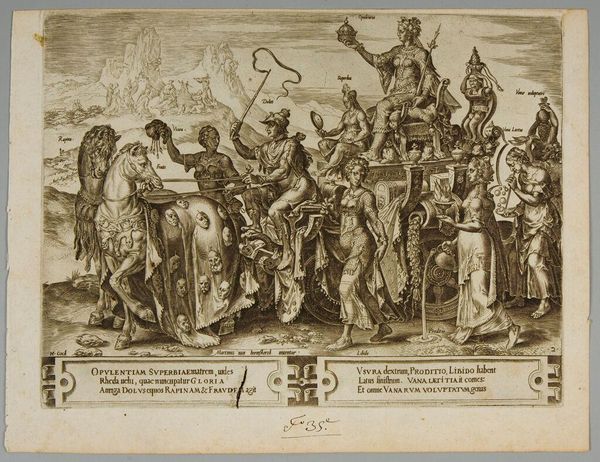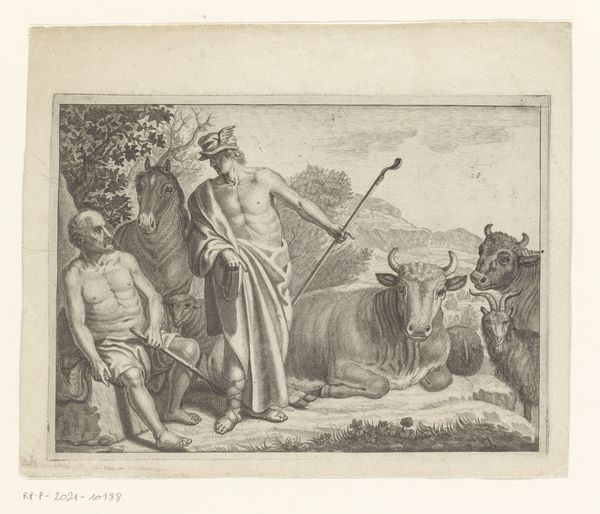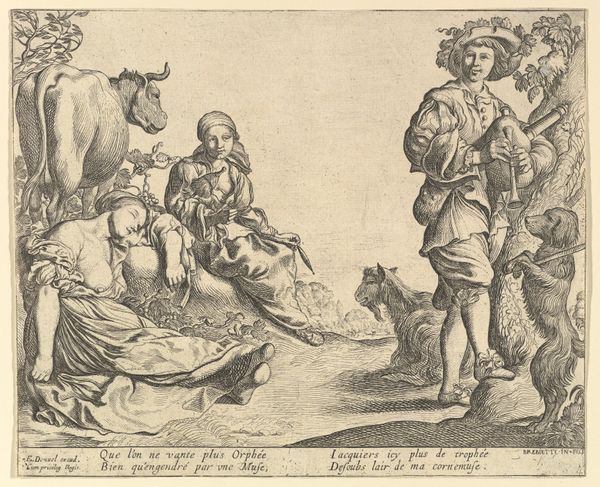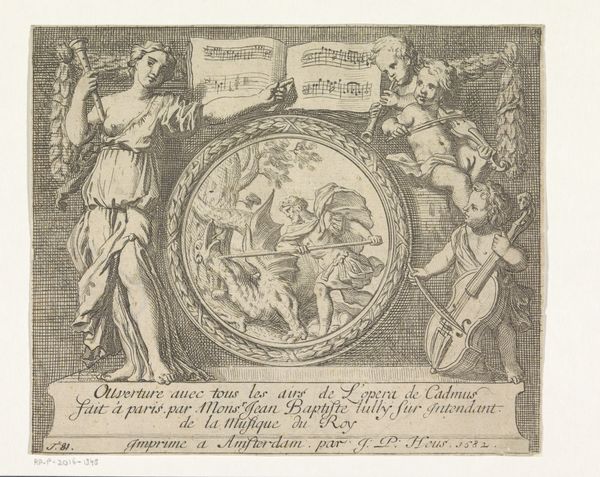
print, engraving
#
baroque
# print
#
old engraving style
#
figuration
#
history-painting
#
engraving
Dimensions: height 194 mm, width 249 mm
Copyright: Rijks Museum: Open Domain
Curator: Here we have "Vader op de rug van de ezel, de zoon te voet"—"Father on the back of the donkey, the son on foot." This engraving, dating roughly from 1570 to 1612, is attributed to Karel van Mallery and resides here at the Rijksmuseum. It’s a compelling example of Baroque printmaking. Editor: Immediately striking is this almost absurd role reversal! There's a stark tension in the composition. The strained faces of the couple on the left seem to be protesting the scene. You can almost feel the little boy’s weariness, making the father on the donkey seem completely out of touch. Curator: The print, being an engraving, served a vital function in disseminating imagery. Mallery's work contributed to a visual culture that used moralizing stories, this one drawn from classical sources to guide social conduct. The figure of the father, elevated and seemingly unbothered, really brings this home. Editor: It’s interesting that you mention morality! There's something darkly comical about his elevated perch as his young son tramps alongside, seemingly suffering. The old engraving style only heightens that sense of theatricality. The details create such striking contrasts—the elegant frame bordering the composition too, feels completely divorced from the rather harsh narrative at play within it. Curator: The text included with the image provides a didactic message, further emphasizing the contrast. The image underscores an enduring debate about how authority, in this case paternal authority, wields power. What looks to you like insensitivity reflects this historical ambivalence. Editor: I see it too now! Looking at it from a different perspective, one almost wonders about that shared burden; I wonder, will there be some sense of redemption and perhaps understanding along this very arduous road? It adds a compelling layer to the work. Curator: A layered consideration which, combined with the image’s historical background, illuminates societal expectations for those figures and beyond. Thank you! Editor: Yes, fascinating! That dynamic certainly offers viewers much to ponder, no doubt prompting internal narratives long after they’ve moved on.
Comments
No comments
Be the first to comment and join the conversation on the ultimate creative platform.
